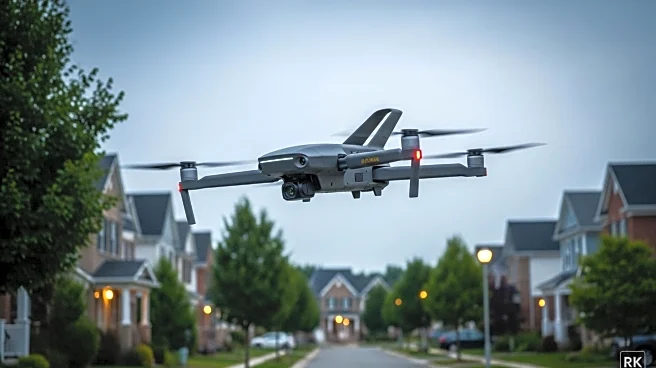What's Happening?
Uber Technologies, Inc. has announced a strategic partnership with Flytrex, Inc. to launch a drone delivery service, marking Uber's first investment in autonomous aerial logistics. The service is set to begin with Uber Eats pilot markets in the U.S. by the end of the year, integrating Flytrex's autonomous drone delivery system with Uber's logistics platform. This collaboration aims to create a flexible, multimodal delivery network that includes autonomous aerial delivery, enhancing speed, safety, and scalability. Flytrex, authorized by the FAA for Beyond Visual Line of Sight operations, brings its expertise to Uber, promising faster and more sustainable delivery solutions. The partnership is expected to redefine last-mile logistics, offering consumers quicker and more cost-efficient delivery options.
Why It's Important?
The partnership between Uber and Flytrex represents a significant advancement in the logistics industry, particularly in the realm of autonomous delivery systems. By integrating drone technology into its platform, Uber is poised to revolutionize the delivery of food and other essentials, potentially reducing delivery times and emissions compared to traditional methods. This move aligns with broader industry trends towards automation and sustainability, offering a glimpse into the future of logistics where autonomous systems play a central role. The collaboration could set a precedent for other companies to explore similar technologies, driving innovation and competition in the delivery sector. Additionally, the reduction in congestion and emissions aligns with environmental goals, contributing to more sustainable urban living.
What's Next?
As Uber and Flytrex prepare to launch their drone delivery service, they will likely focus on expanding their operational footprint and refining the technology to ensure safety and efficiency. Stakeholders, including regulatory bodies like the FAA, will play a crucial role in overseeing the deployment of these autonomous systems. The success of this initiative could lead to broader adoption of drone delivery services across various industries, prompting other companies to invest in similar technologies. Consumers can expect faster delivery times and potentially lower costs, while businesses may benefit from streamlined logistics and reduced environmental impact.









